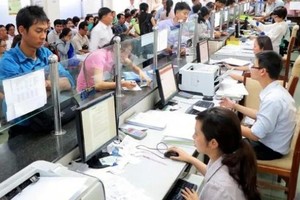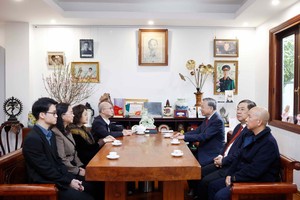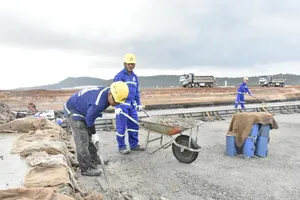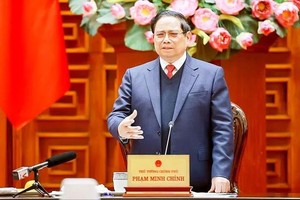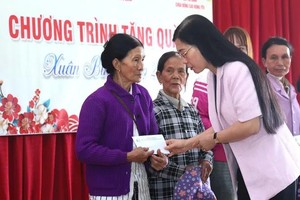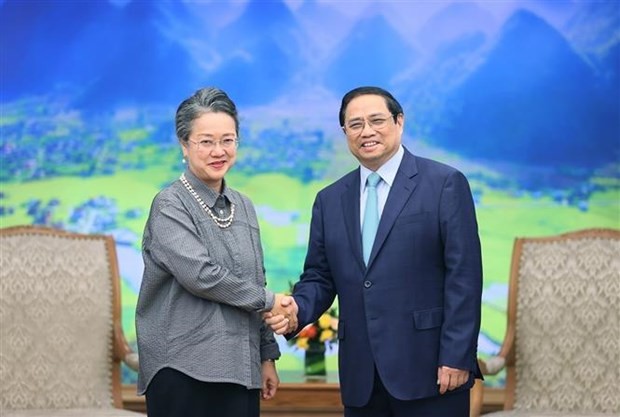 |
Prime Minister Pham Minh Chinh (R) and Under-Secretary-General of the UN and Executive Secretary of the ESCAP Armida Salsiah Alisjahbana in Hanoi on July 3. (Photo: VNA) |
Prime Minister Pham Minh Chinh on July 3 suggested the United Nations (UN) and its Economic and Social Commission for Asia and the Pacific (ESCAP) in particular carry forward their strengths to support member countries, including Vietnam, in socio-economic development policy-making and enforcement.
At a reception for Under-Secretary-General of the UN and Executive Secretary of the ESCAP Armida Salsiah Alisjahbana in Hanoi, the PM affirmed that Vietnam highly values the role of the UN in promoting multilateral cooperation to address global issues, as well as significant contributions by the ESCAP to socio-economic development in Asia-Pacific since its establishment more than 75 years ago.
Vietnam attaches importance to efforts in promoting an environment of peace, cooperation and development in the world, and is resolved to protect the nature and the environment, he continued.
In reply, Alisjahbana spoke highly of Vietnam’s significant achievements in socio-economic development and post-COVID-19 recovery in a sustainable manner, as well as the country’s positive and effective contributions to the UN and the commission.
She also commended Vietnam's efforts and commitments in implementing Sustainable Development Goals (SDGs), coping with climate change, materializing the Just Energy Transition Partnership (JETP) and digital transformation, among other fields.
The UN official expressed her belief that Vietnam will successfully achieve its socio-economic development goals and set an example for many other countries.
The ESCAP and other UN organizations are ready to support Vietnam in accelerating the fulfillment of the SDGs, preparing to join the 2023 SDG Summit to be organized by the UN Secretary-General in New York in September, just energy transition, climate change response, and digital transformation, she pledged.
The two sides shared concern over the adverse impacts of global challenges such as conflicts, climate change and inflation.
Chinh said the global issues have impacted on all, so it is necessary to have a comprehensive, global approach, where equality is ensured.
In this regard, Alisjahbana stressed the importance of international cooperation and a whole-of-government and whole-of-society approach in addressing these challenges.






